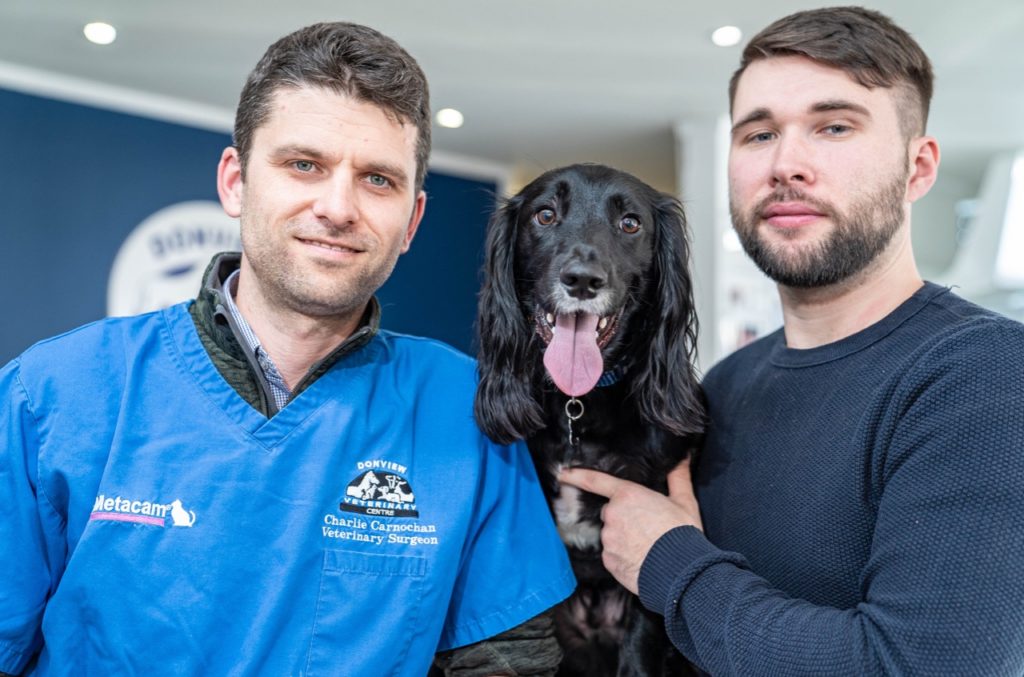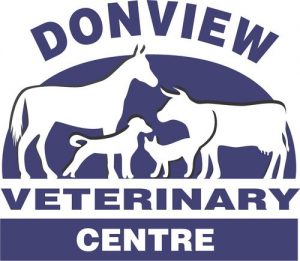
Jack, a one-year-old sprocker, was rushed to Donview Veterinary Centre in Inverurie after eating a box of human anti-inflammatory pain killers called naproxen.
Naproxen, a common medicine that can be bought without prescription to reduce inflammation and pain, is highly toxic to both dogs and cats.
Even eating one of the tablets could potentially have proved fatal or caused acute kidney failure and gastrointestinal ulcers for the pup.
Jack stole the tablets, which had been stored in a ground-level cupboard at his owner Mark Anderson’s home in Aberdeen.
Mr Anderson rang Donview Vets to ask for advice before being advised to bring his much-loved pet to the practice.
The veterinary team induced vomiting and gave him liquid charcoal to absorb any toxic fluids in his stomach.
Jack was also hospitalised and given intra-venous fluids for 24 hours to prevent damage to his kidneys, and sent home with medications to protect his stomach from ulceration.
Mr Anderson, who has owned Jack since he was a puppy, found the ripped up naproxen box and chewed up tablets when he returned home from work at Aberdeen Airport.
He said: “They were in a box under a unit in the kitchen, but Jack is a scavenger so he managed to get in and steal them. Being so young, he has a habit of chewing everything. I found fragments of the tablets on the floor and quickly Googled to check the dangers and then rang the vets.
Donview Vets, Inverurie, Thursday 27rd February 2020
Pictured is Jack the Spaniel with onwer Mark Anderson and Vet Charlie Carnochan
Pictured Left to Right is Charlie Carnochan and Mark Anderson
Picture by Euan Duff / Abermedia
“He knew he had done wrong and was in trouble as he was looking sorry for himself.
“The tablets perhaps weren’t in the best place and we’ll be more vigilant now about what’s at ground level as Jack is so energetic and curious.”
Donview Vets clinical director Charlie Carnochan added: “It was a happy outcome for Jack, but it could have been worse.
“Jack’s owner was quick off the mark to speak to us about it so we were able to take advice from the Veterinary Poisons Information Service and act swiftly.
“We always recommend that medication, including veterinary treatments, is kept out of reach of pets and that owners contact their vets at the earliest opportunity for advice and guidance.”

